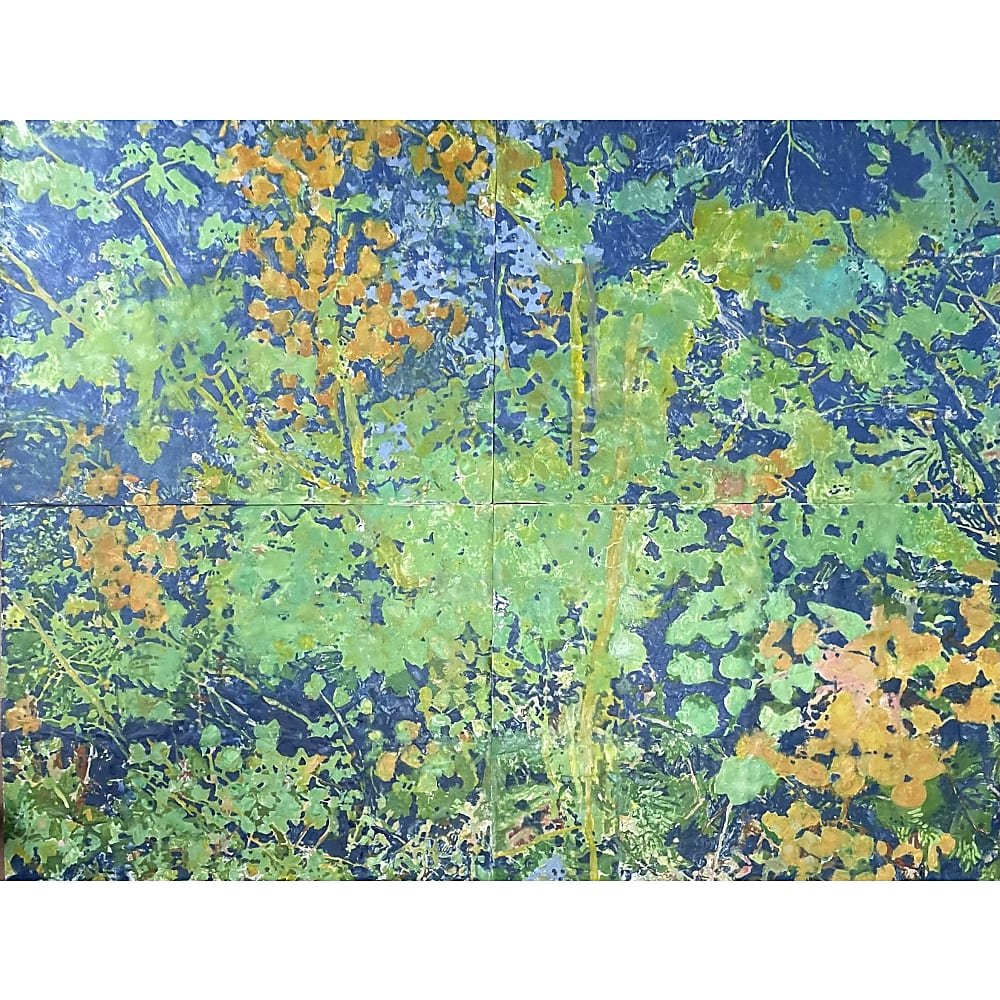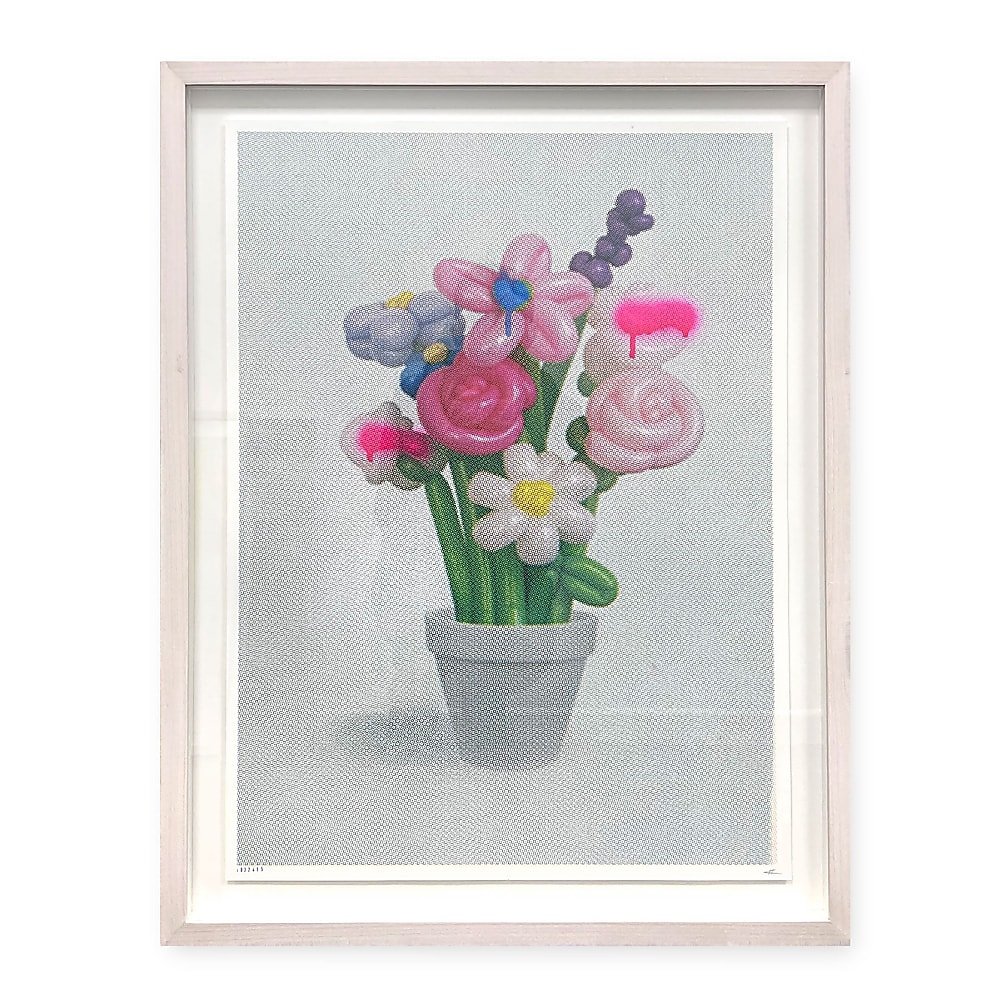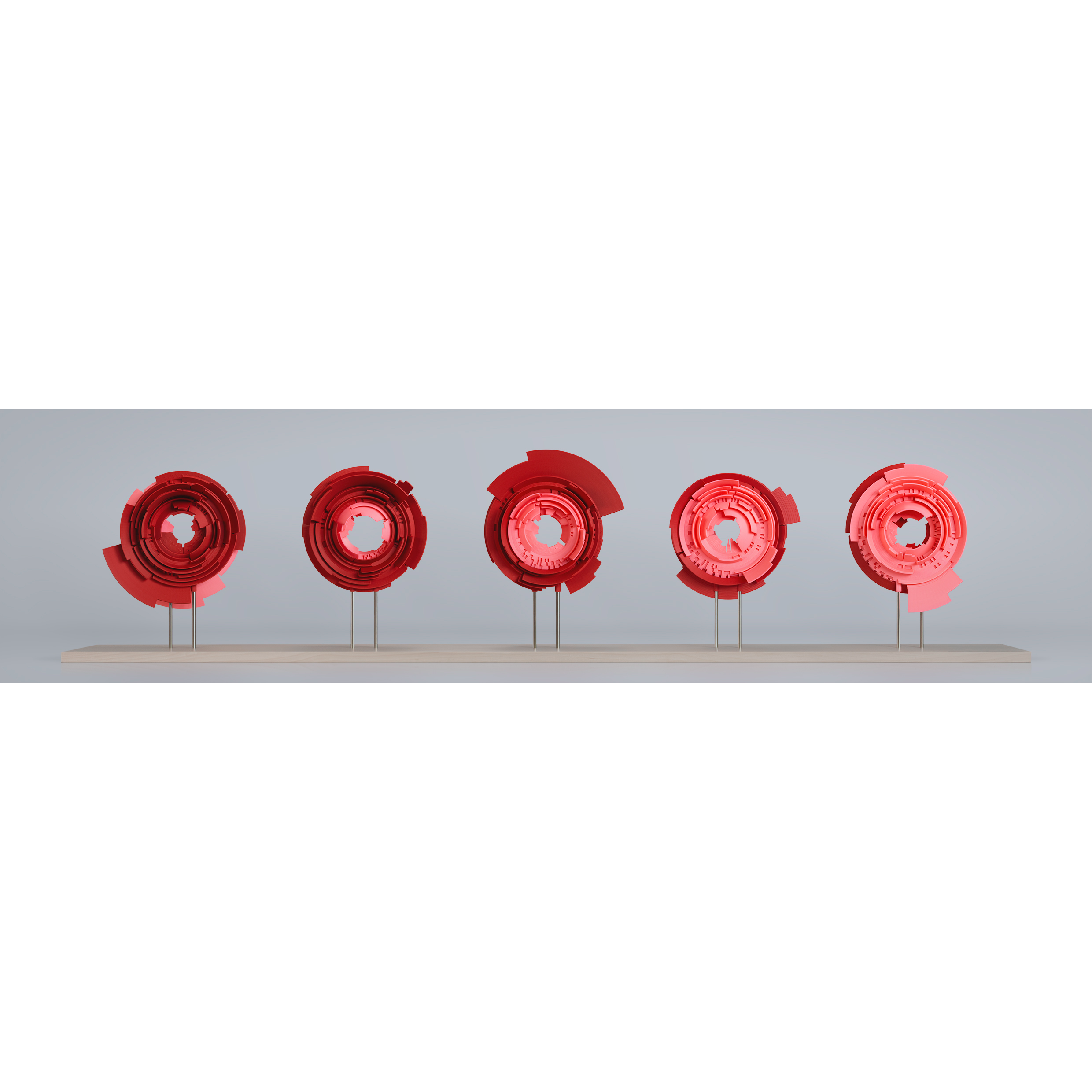 Image 1 of
Image 1 of

Karen Camkin
£0.00
Karen Camkin’s practice is informed by her curiosity and observations of the natural world, combining memories with a deepening understanding of the value and health-giving properties of time spent in gardens connected to nature and its potential to positively influence our present human condition. Her practice has wrapped itself around her domestic and family life and is a space where one informs the other.
The act of slow looking and finding interest in the everyday is a form of meditation and is integral to her work. She uses the concept of fragments suggestive of a glimpse of something unnoticed, which can act as a metaphor of experience, a visual tool to explore memory and feelings. She distils her observations through collaging and digitally manipulating both her own photographs and found archival images to slowly reveal their significance. These become be the starting points for making work in the studio that combine printing techniques and painting to make surfaces that move between abstraction and figuration, urging the viewers eye to wander slowly across the surface, look more carefully and through looking, experience distraction and absorption.
She is not making accurate botanical studies more an impression, a shorthand intending to create a sense of curiosity and awe, a nod towards the stories plants have told, with their multiplicity of meanings and harnessing their symbolism weaving them into new narratives. Words sometimes appear in her work that create additional access points with the intention to make immersive portraits of plants that that can tap into our primal needs and connect collectively to immersing the viewer in the consolations and rich references that can be found in nature.
The act of slow looking and finding interest in the everyday is a form of meditation and is integral to her work. She uses the concept of fragments suggestive of a glimpse of something unnoticed, which can act as a metaphor of experience, a visual tool to explore memory and feelings. She distils her observations through collaging and digitally manipulating both her own photographs and found archival images to slowly reveal their significance. These become be the starting points for making work in the studio that combine printing techniques and painting to make surfaces that move between abstraction and figuration, urging the viewers eye to wander slowly across the surface, look more carefully and through looking, experience distraction and absorption.
She is not making accurate botanical studies more an impression, a shorthand intending to create a sense of curiosity and awe, a nod towards the stories plants have told, with their multiplicity of meanings and harnessing their symbolism weaving them into new narratives. Words sometimes appear in her work that create additional access points with the intention to make immersive portraits of plants that that can tap into our primal needs and connect collectively to immersing the viewer in the consolations and rich references that can be found in nature.
Add To Cart
Karen Camkin’s practice is informed by her curiosity and observations of the natural world, combining memories with a deepening understanding of the value and health-giving properties of time spent in gardens connected to nature and its potential to positively influence our present human condition. Her practice has wrapped itself around her domestic and family life and is a space where one informs the other.
The act of slow looking and finding interest in the everyday is a form of meditation and is integral to her work. She uses the concept of fragments suggestive of a glimpse of something unnoticed, which can act as a metaphor of experience, a visual tool to explore memory and feelings. She distils her observations through collaging and digitally manipulating both her own photographs and found archival images to slowly reveal their significance. These become be the starting points for making work in the studio that combine printing techniques and painting to make surfaces that move between abstraction and figuration, urging the viewers eye to wander slowly across the surface, look more carefully and through looking, experience distraction and absorption.
She is not making accurate botanical studies more an impression, a shorthand intending to create a sense of curiosity and awe, a nod towards the stories plants have told, with their multiplicity of meanings and harnessing their symbolism weaving them into new narratives. Words sometimes appear in her work that create additional access points with the intention to make immersive portraits of plants that that can tap into our primal needs and connect collectively to immersing the viewer in the consolations and rich references that can be found in nature.
The act of slow looking and finding interest in the everyday is a form of meditation and is integral to her work. She uses the concept of fragments suggestive of a glimpse of something unnoticed, which can act as a metaphor of experience, a visual tool to explore memory and feelings. She distils her observations through collaging and digitally manipulating both her own photographs and found archival images to slowly reveal their significance. These become be the starting points for making work in the studio that combine printing techniques and painting to make surfaces that move between abstraction and figuration, urging the viewers eye to wander slowly across the surface, look more carefully and through looking, experience distraction and absorption.
She is not making accurate botanical studies more an impression, a shorthand intending to create a sense of curiosity and awe, a nod towards the stories plants have told, with their multiplicity of meanings and harnessing their symbolism weaving them into new narratives. Words sometimes appear in her work that create additional access points with the intention to make immersive portraits of plants that that can tap into our primal needs and connect collectively to immersing the viewer in the consolations and rich references that can be found in nature.
Karen Camkin’s practice is informed by her curiosity and observations of the natural world, combining memories with a deepening understanding of the value and health-giving properties of time spent in gardens connected to nature and its potential to positively influence our present human condition. Her practice has wrapped itself around her domestic and family life and is a space where one informs the other.
The act of slow looking and finding interest in the everyday is a form of meditation and is integral to her work. She uses the concept of fragments suggestive of a glimpse of something unnoticed, which can act as a metaphor of experience, a visual tool to explore memory and feelings. She distils her observations through collaging and digitally manipulating both her own photographs and found archival images to slowly reveal their significance. These become be the starting points for making work in the studio that combine printing techniques and painting to make surfaces that move between abstraction and figuration, urging the viewers eye to wander slowly across the surface, look more carefully and through looking, experience distraction and absorption.
She is not making accurate botanical studies more an impression, a shorthand intending to create a sense of curiosity and awe, a nod towards the stories plants have told, with their multiplicity of meanings and harnessing their symbolism weaving them into new narratives. Words sometimes appear in her work that create additional access points with the intention to make immersive portraits of plants that that can tap into our primal needs and connect collectively to immersing the viewer in the consolations and rich references that can be found in nature.
The act of slow looking and finding interest in the everyday is a form of meditation and is integral to her work. She uses the concept of fragments suggestive of a glimpse of something unnoticed, which can act as a metaphor of experience, a visual tool to explore memory and feelings. She distils her observations through collaging and digitally manipulating both her own photographs and found archival images to slowly reveal their significance. These become be the starting points for making work in the studio that combine printing techniques and painting to make surfaces that move between abstraction and figuration, urging the viewers eye to wander slowly across the surface, look more carefully and through looking, experience distraction and absorption.
She is not making accurate botanical studies more an impression, a shorthand intending to create a sense of curiosity and awe, a nod towards the stories plants have told, with their multiplicity of meanings and harnessing their symbolism weaving them into new narratives. Words sometimes appear in her work that create additional access points with the intention to make immersive portraits of plants that that can tap into our primal needs and connect collectively to immersing the viewer in the consolations and rich references that can be found in nature.





